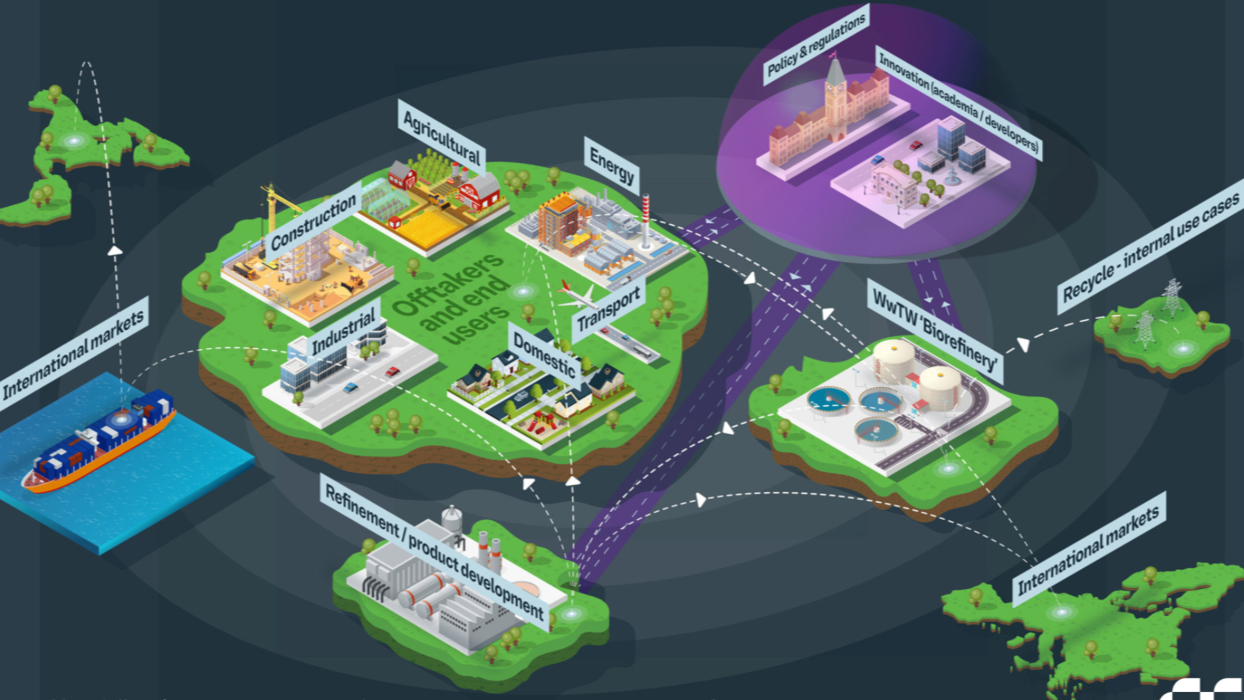AtkinsRéalis, a fully integrated professional services and project management company, has led a project to develop a unique, digital tool for the water sector which will enable more effective resource recovery prioritisation from the treatment of wastewater and sewage sludge (bioresources).
Following on from its work with the Charted Institute of Water and Environmental Management (CIWEM) on the Bioresources Strategy for England for Water UK, AtkinsRéalis was appointed by UK Water Industry Research (UKWIR) to develop the resource recovery tool, and has worked along with Cranfield University and CIWEM in the delivery of the tool.
The tool will ensure water companies can make more informed decisions about the priority of materials they could be recovering from wastewater and sewage sludge. This is key as they look to move away from a traditional waste treatment model to a biorefinery concept, which sees wastewater not as a waste, but as a substance containing a range of valuable components.
Wastewater and the sludge treatment stream contain a whole host of materials that can be recovered, from biosolids to ammonia, carbon dioxide and many more. There is real potential for these materials to be redistributed in other sectors such as the agri-fertilizer industry looking for an alternative source of nutrients and ammonia to produce fertilizers in a more cost-effective, sustainable way. Similarly there could be an opportunity in the highway sector which is looking at producing a different type of asphalt with a lower carbon status.
The challenge for the water industry has been knowing what to focus on in terms of resource recovery so the new tool aims to identify the top priority resources the water industry should be focusing efforts on. This takes into account strategic drivers such as Net Zero impact, environmental impact, ESG or technology readiness level.
It will also help enable and improve sustainability and support net zero targets as well as providing value for money to water companies which would have the potential to develop income streams from valuable materials that can be sold into the marketplace.
Rick Lancaster, Global Bioresources Director at AtkinsRéalis, said:
“There are myriad uses for what comes out of the treatment of wastewater and sewage sludge and the key point is to realise full circularity by taking something that is considered to be waste and finding a new use for it.
“This is a big step forward that will provide water companies with far greater opportunities for sustainable waste strategies, by working in partnership with water organisations and academic experts. We have created technology to make it far easier and more cost-effective to recover the useful outputs from waste.”
By setting out a framework for high priority resources for the water sector to focus on, the results derived from using the tool can support the aims of achieving a Circular Economy through strategies for self-sufficiency, resilience for the UK, and reaching net zero ambitions by reducing the overall impact of treatment and improving sustainability.
Industry Programme Lead, Dr Donna Rawlinson of Northumbrian Water, added:
“Leading up to our next regulatory period (otherwise referred to as PR29), it is almost certain that current operating models will need to adapt to new regulatory changes associated with our current reliance on recycling biosolids to agricultural land and the publishing of the National Bioresources Strategy.
“Based upon this opportunity to diversify, the availability of this tool and clear recommendations derived from it will be fundamental to shaping our bioresources strategy. This project helps UK & Irish water companies to maximise circular economy opportunities and provides clear guidance on responding to key challenges ahead.”
Richard Whale, Global Water Market director at AtkinsRéalis, added:
“By enabling water companies to make informed decisions about the resources they should be prioritising for recovery, we can start to see huge opportunities to support net zero strategies, as well as supplying much-needed raw materials to make industry as a whole more sustainable in operation.”
For more information about the project, UKWIR has now published its report into the prioritisation of resource recovery opportunities – Water Industry Research reports



